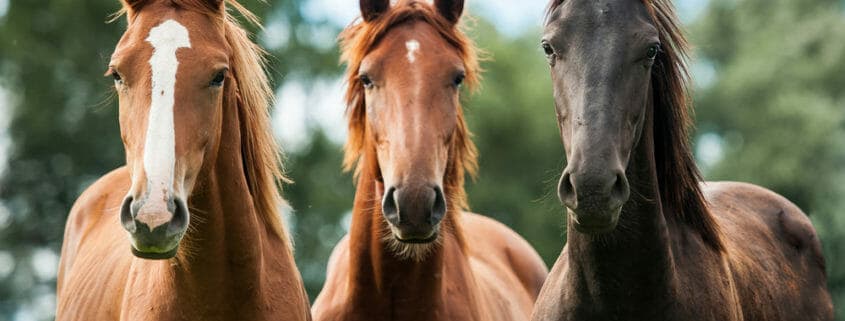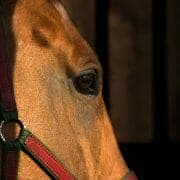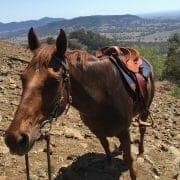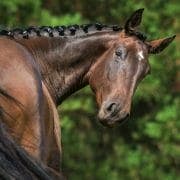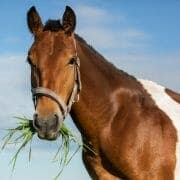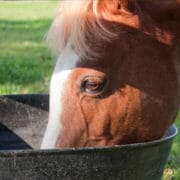Hindgut Bacteria, Vitamin B1, and Behaviour: Are They Linked?
The short answer is yes! Here is how:
How Vitamin B1 affects your horse’s gut bacteria
Vitamin B1 has been observed to have an influence on behaviour in multiple animal species, including horses. A horse will meet its vitamin B1 requirements via the vitamin B1 it eats in its diet and from vitamin B1 produced by the bacteria in its hindgut.
There are two main families of bacteria living in your horse’s hindgut:
1. The fiber fermenting bacteria who love to ferment fibre from the forage your horse eats. These little critters are the ones we consider the ‘good bacteria’; and
2. The starch and sugar fermenting bacteria who prefer to ferment starch and sugars. These we generally consider to be the ‘bad bacteria’.
The good bacteria PRODUCE vitamin B1 that your horse can then absorb and use.
On the other hand, the bad bacteria produce a compound called ‘Thiaminase’ that actually destroys vitamin B1 (also known as thiamine) that is in the gut, making it useless to your horse.
How hindgut bacteria affects your horse’s behaviour
If your horse has too many bad bacteria in its hindgut, and not enough of the good ones, your horse may not get enough vitamin B1 and behavioural changes may occur.
What you can do
How do you avoid this? Keep your horse’s hindgut healthy with an abundant population of good bacteria. The main two things you should do to achieve this are:
1. Feed lots of forage!
2. Never feed uncooked grains (with the exception of oats for some horses)
For more tips on caring for your horse’s hindgut, read our article Keeping the Hindgut Healthy.
Do you have a question or comment? Do you need help with feeding?
We would love to welcome you to our FeedXL Horse Nutrition Facebook Group. Ask questions and have them answered by PhD and Masters qualified equine nutritionists and spend time with like-minded horse owners. It’s free!
Click here to join the FeedXL Horse Nutrition Facebook Group

